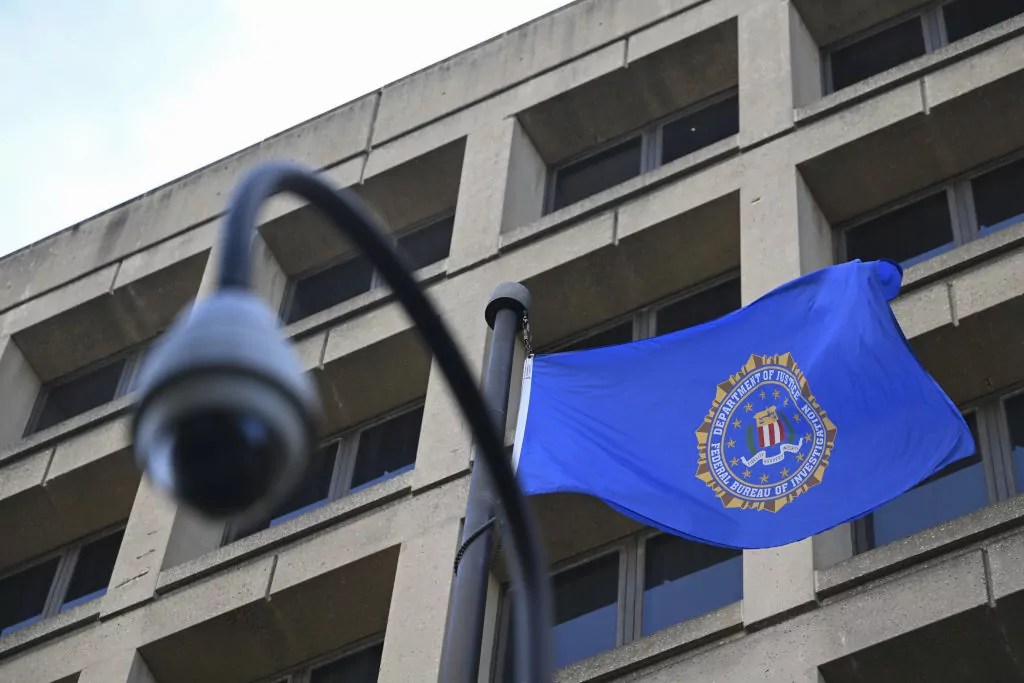Fitch may downgrade many US banks after cutting America’s credit rating.
Fitch Warns of Potential Downgrades for American Banks
A senior analyst at Fitch warned on Tuesday that the credit rating agency may be forced to slap dozens of American banks with downgrades amid ongoing woes in the U.S. banking industry.
Chris Wolfe, head of North American banks at Fitch Ratings, told CNBC in an interview that if the rating agency reduces its score for the overall operating environment of U.S. banks by another notch—from AA- to A+—this would force a series of downgrades of individual banks.
“If we were to move it to A+, then that would recalibrate all our financial measures and would probably translate into negative rating actions,” Mr. Wolfe told the outlet.
Related Stories
Mr. Wolfe’s warning follows a move by Fitch in June to lower the score for the overall operating environment of U.S. banks from AA to AA- due to downward pressure on the sovereign credit rating of the United States, as well as shortcomings in the regulatory framework and uncertainty around the Federal Reserve’s rate hikes.
“Interest rates have begun to reverse a long-run decline since the early 1980s, and banks will be operating in an environment of higher rates for an extended period, pressuring deposit levels and increasing funding costs,” Fitch said in a June 27 statement, elaborating on its “structural challenges” rationale for slashing the score.
At the time, Fitch said it did not expect the reduced operating environment score to have a negative impact on the ratings of U.S. banks, although it did warn that it reduced the “ratings headroom.”
Fitch said that, in principle, a one-notch downgrade in the banking industry score doesn’t necessarily result in bank issuer rating cuts. However, it did warn that a multi-notch downgrade would, all else being equal, lead to lower financial profile scores.
Mr. Wolfe’s remarks to CNBC make clear that Fitch is getting closer to another industry downgrade and that this would trigger rating cuts for individual banks.
Since individual banks can’t be rated higher than their operating environment, the move would mean that the nation’s two biggest banks, JPMorgan and Bank of America, would likely get cut from their current AA- down to A+.
The Fitch analyst’s remarks come as rating agency Moody’s cut the ratings of several small-to mid-sized banks and said there could be more cuts in the pipeline.
Financial stocks fell following the Fitch ratings action threat, with JPMorgan shares falling around 2 percent and Bank of America dipping around 3 percent.
Fitch Downgrades US
Mr. Wolfe’s warning comes not long after Fitch moved to slash America’s long-term credit rating from AAA to AA+ at the beginning of August.
In justifying its U.S. sovereign downgrade decision, Fitch said there has been a steady deterioration in governance standards in the United States over the past two decades, including on issues of government spending and debt servicing.
“The repeated debt-limit political standoffs and last-minute resolutions have eroded confidence in fiscal management,” Fitch stated.
“In addition, the government lacks a medium-term fiscal framework, unlike most peers, and has a complex budgeting process.”
With the loss of its top sovereign credit rating, the United States has fallen behind Germany, Denmark, the Netherlands, Sweden, Norway, Switzerland, Singapore, Luxembourg, and Australia.
Treasury Secretary Janet Yellen has called the downgrade “entirely unwarranted,” while the White House said it “strongly” disagrees with Fitch’s decision.
This was the second time in history the country’s AAA rating has been downgraded.
Blame Game
Despite Fitch’s concerns over “fiscal deterioration” and other factors, the White House has blamed former president Donald Trump and House Republicans for the downgrade.
Republicans have pushed back on this assertion, while expert reactions have been mixed.
Blackstone CEO Steve Schwarzman, for example, said that the downgrade was regrettable but justified, in large measure due to the out-of-control government spending that keeps adding to the federal debt load.
“The numbers justify it, regrettably,” Mr. Schwarzman told CNBC in a wide-ranging interview earlier this month. “We’ve had an explosion of debt since the global financial crisis. We don’t appear to have a lot of discipline.”
Mohamed El-Erian, chief economic adviser to financial services company Allianz SE, took to X (formerly Twitter) to express his viewpoint on what he described as a “strange move.”
“I am very puzzled by many aspects of this announcement, as well as by the timing,” Mr. El-Erian wrote. “Overall, this announcement is much more likely to be dismissed than have a lasting disruptive impact on the U.S. economy and markets.”
JPMorgan Chase CEO Jamie Dimon told CNBC he thought the credit drop was “ridiculous,” yet mostly inconsequential as financial markets, rather than rating agencies, determine borrowing costs, and that, in his view, investors remain confident in the ability of the United States to service its debts.
On the political front, Kevin Munoz, President Joe Biden’s reelection campaign spokesperson, said in a statement on Aug. 2 that this was a “Trump downgrade” and “a direct result of an extreme MAGA Republican agenda” that is “defined by chaos, callousness, and recklessness.”
Jared Bernstein, chair of President Biden’s Council of Economic Advisers, alluded to the “cognitive dissonance” he endured when learning about the “bizarre” downgrade that “made no sense” because of the success of ”Bidenomics.”
Senate majority leader Chuck Schumer (D-N.Y.) pinned the blame on House Republicans.
" Conservative News Daily does not always share or support the views and opinions expressed here; they are just those of the writer."





Now loading...